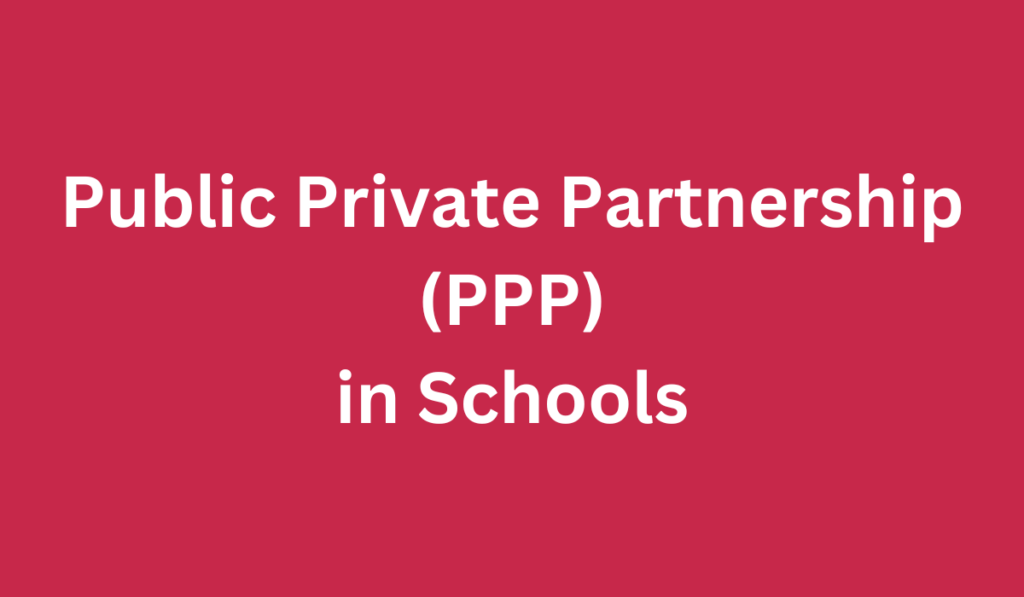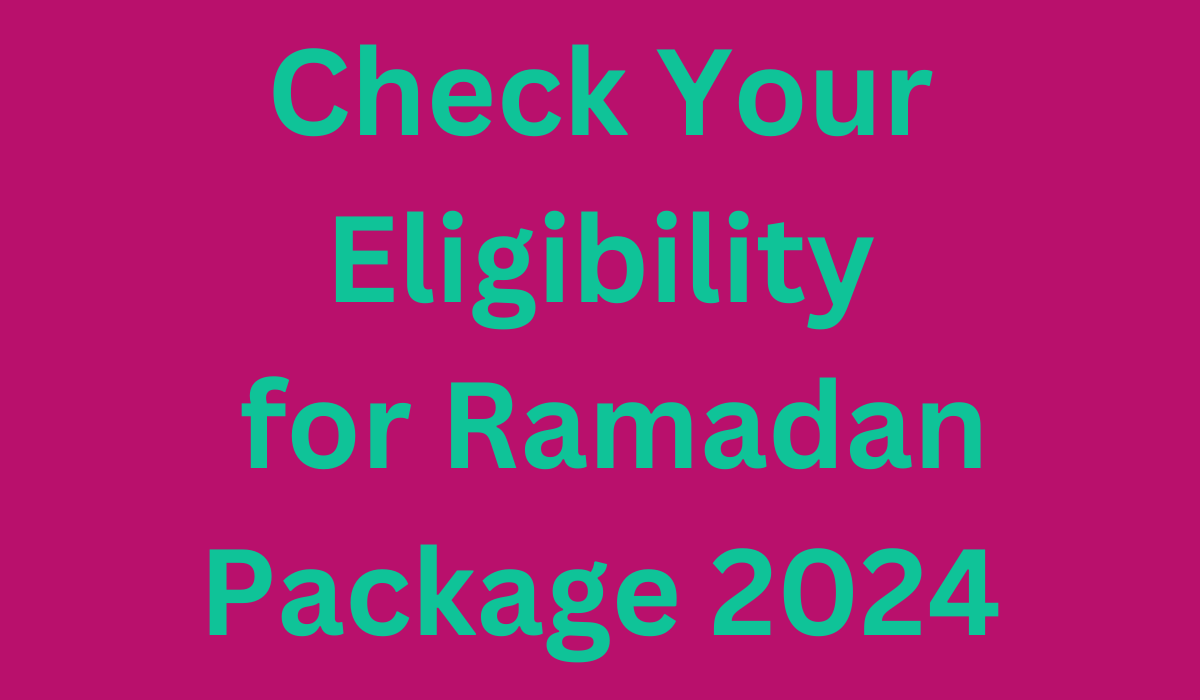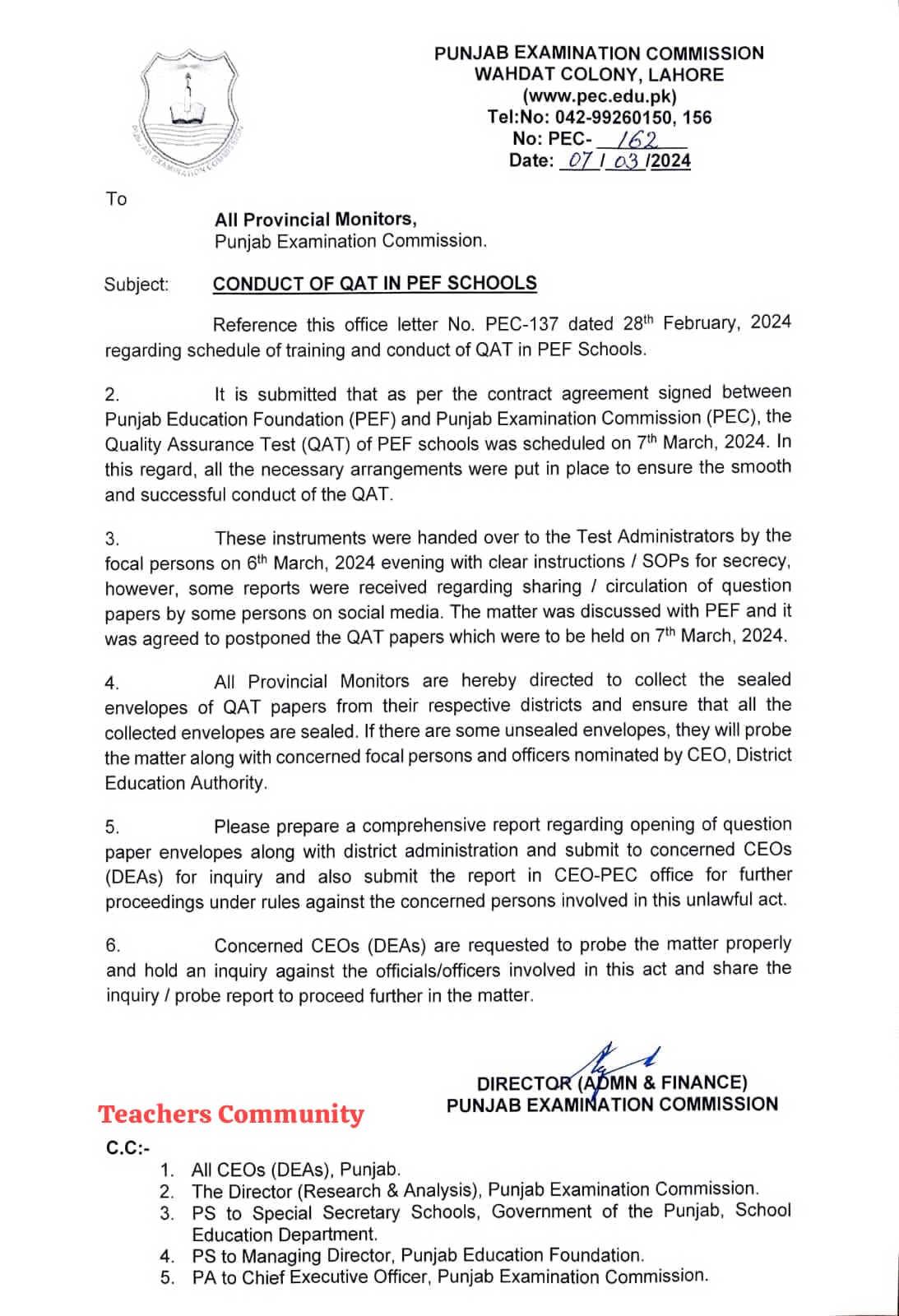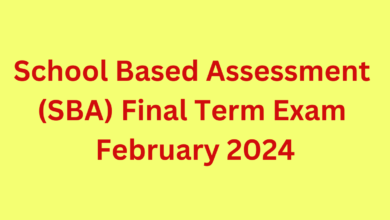Public Private Partnership (PPP) in Schools
Contents
Public Private Partnership (PPP) in Schools
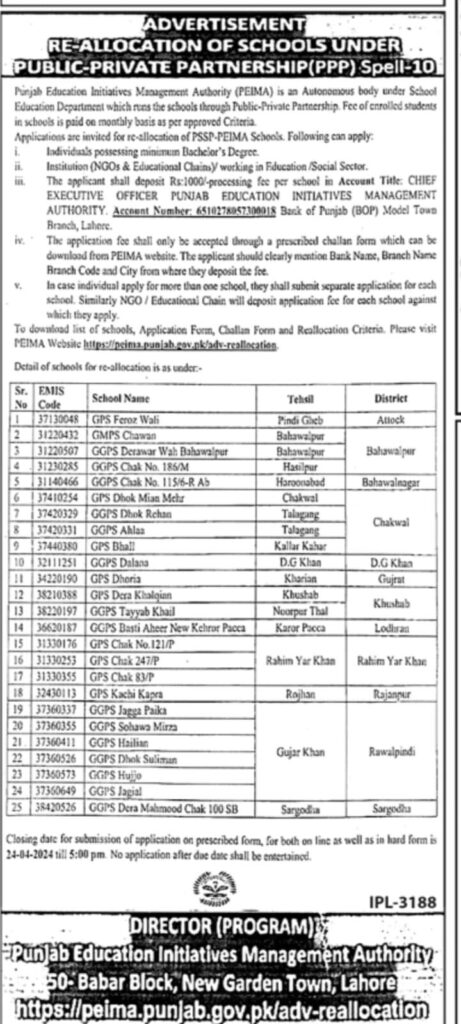
Introduction
Public-Private Partnerships (PPPs) are public service delivery arrangements between the government and private sector organizations. In education, PPPs can involve the private sector in financing, building, managing, or operating schools.
Body
There are different models of PPP in education. Some common models include:
- Build-Operate-Transfer (BOT): In the BOT model, the private sector finances, constructs and operates a school for a fixed period, after which ownership of the school is transferred to the government. Is.
- Management Contracts: In a management contract, the private sector manages a public school for a fixed period of time. The government retains ownership of the school, but the private sector is responsible for the day-to-day operations of the school.
- Voucher: In a voucher system, the government provides vouchers to parents that they can use to pay for tuition at a public or private school.
Advantages of PPPs in Education
There are many potential benefits of PPPs in education. These include:
- Increased investment in education: PPPs can bring in additional funding for education from the private sector.
- Improved efficiency and innovation: Private sector organizations may be able to manage schools more effectively than the government.
Greater choice for parents: PPPs can increase the number of choices available to parents for their children’s education.
Dangers of PPPs in Education
There are also several potential risks associated with PPPs in education. These include:
- Profit Motive: Private sector organizations may be more interested in making profit than providing quality education.
- Accountability: It can be difficult to hold private sector organizations accountable for the performance of schools.
- Equity: PPPs can lead to a two-tier education system, with better schools for those who can afford to pay.
Table: Examples of PPP Arrangements in Education
| Type of PPP | Description | Example |
|---|---|---|
| Build-Operate-Transfer (BOT) | The private sector finances, builds and operates the school for a fixed period, after which ownership of the school is transferred to the government. | A country’s government may enter into a BOT contract with a private company to build and operate a new school. The private company will be responsible for financing the construction of the school as well as running the school for a fixed period. After the expiry of the BOT contract, the ownership of the school will be transferred to the government. |
| Management Agreements | The private sector manages the public school for a fixed period. The government retains ownership of the school, but the private sector is responsible for the day-to-day operations of the school. | A city government may enter into a management contract with a private education company to manage a public school. The education company will be responsible for the day-to-day operations of the school, such as hiring teachers, developing the curriculum, and managing the school budget. The government will retain ownership of the school and be responsible for setting overall educational standards. |
| Vouchers | The government provides vouchers to parents that they can use to pay for tuition at a public or private school. | A state government may implement a voucher program that provides parents with vouchers that they can use to pay tuition at any public or private school in the state. Parents will be able to choose the school that best meets their child’s needs. |
Result
PPPs are a complex issue with both potential benefits and risks. It is important to consider the potential benefits and risks of PPPs before entering into such arrangements.
Frequently Asked Questions
What is the role of government in PPP?
The role of government in a PPP can vary depending on the specific type of PPP. However, in general, the government is responsible for setting overall educational standards and ensuring that private sector organizations are held accountable for meeting these standards.
*How are PPPs funded?
PPPs can be funded in a number of ways. In some cases, the government may provide funding for PPPs. In other cases, a private sector organization may be responsible for financing the PPP.
- What are the benefits of PPPs for parents?
PPPs can provide parents with more choices for their children’s education. In some cases, PPPs can also lead to reduced tuition costs for parents.
- What are the risks of PPPs for students?
There is a risk that PPPs could lead to a two-tier education system, with better schools for those who can afford to pay. There is also the risk that private sector organizations may be more interested in making profits than providing q.
اسکولوں میں پبلک پرائیویٹ پارٹنرشپ (PPP)
تعارف
پبلک پرائیویٹ پارٹنرشپ (PPPs) حکومت اور نجی شعبے کی تنظیموں کے درمیان عوامی خدمات کی فراہمی کے انتظامات ہیں۔ تعلیم میں، PPPs نجی شعبے کو مالی امداد، تعمیر، انتظام، یا اسکولوں کو چلانے میں شامل کر سکتے ہیں۔
جسم
تعلیم میں پی پی پی کے مختلف ماڈلز موجود ہیں۔ کچھ عام ماڈلز میں شامل ہیں:
- بلڈ-آپریٹ-ٹرانسفر (BOT): BOT ماڈل میں، نجی شعبہ ایک مقررہ مدت کے لیے اسکول کی مالی امداد کرتا ہے، تعمیر کرتا ہے اور اسے چلاتا ہے، جس کے بعد اسکول کی ملکیت حکومت کو منتقل ہوجاتی ہے۔
- انتظامی معاہدے: انتظامی معاہدے میں، نجی شعبہ ایک مقررہ مدت کے لیے پبلک اسکول کا انتظام کرتا ہے۔ حکومت اسکول کی ملکیت کو برقرار رکھتی ہے، لیکن نجی شعبہ اسکول کے روزمرہ کے کاموں کا ذمہ دار ہے۔
- واؤچر: ایک واؤچر سسٹم میں، حکومت والدین کو واؤچر فراہم کرتی ہے جسے وہ سرکاری یا نجی اسکول میں ٹیوشن کی ادائیگی کے لیے استعمال کر سکتے ہیں۔
تعلیم میں پی پی پیز کے فوائد
تعلیم میں پی پی پیز کے بہت سے ممکنہ فوائد ہیں۔ یہ شامل ہیں:
- تعلیم میں سرمایہ کاری میں اضافہ: PPPs نجی شعبے سے تعلیم کے لیے اضافی فنڈنگ لاسکتی ہیں۔
- بہتر کارکردگی اور اختراع: پرائیویٹ سیکٹر کی تنظیمیں حکومت کے مقابلے میں زیادہ مؤثر طریقے سے اسکولوں کا انتظام کرنے کے قابل ہوسکتی ہیں۔
والدین کے لیے بڑا انتخاب: PPPs والدین کے لیے اپنے بچوں کی تعلیم کے لیے دستیاب انتخاب کی تعداد میں اضافہ کر سکتے ہیں۔
تعلیم میں پی پی پیز کے خطرات
تعلیم میں پی پی پیز سے وابستہ کئی ممکنہ خطرات بھی ہیں۔ یہ شامل ہیں:
- منافع کا مقصد: نجی شعبے کی تنظیمیں معیاری تعلیم فراہم کرنے کے بجائے منافع کمانے میں زیادہ دلچسپی لے سکتی ہیں۔
- احتساب: نجی شعبے کی تنظیموں کو اسکولوں کی کارکردگی کے لیے جوابدہ بنانا مشکل ہوسکتا ہے۔
- ایکویٹی: PPPs دو سطحی نظام تعلیم کا باعث بن سکتے ہیں، جس میں ان لوگوں کے لیے بہتر اسکول ہوں گے جو ادائیگی کرنے کی استطاعت رکھتے ہیں۔
ٹیبل: تعلیم میں پی پی پی کے انتظامات کی مثال
| پی پی پی کی قسم | تفصیل | مثال |
|---|---|---|
| تعمیر-آپریٹ-ٹرانسفر (BOT) | پرائیویٹ سیکٹر ایک مقررہ مدت کے لیے اسکول کی مالی معاونت، تعمیر اور اسے چلاتا ہے، جس کے بعد اسکول کی ملکیت حکومت کو منتقل ہوجاتی ہے۔ | کسی ملک کی حکومت ایک نیا اسکول بنانے اور چلانے کے لیے نجی کمپنی کے ساتھ BOT معاہدہ کر سکتی ہے۔ نجی کمپنی اسکول کی تعمیر کے لیے مالی امداد کے ساتھ ساتھ ایک مقررہ مدت کے لیے اسکول کو چلانے کی ذمہ دار ہوگی۔ بی او ٹی معاہدے کی میعاد ختم ہونے کے بعد اسکول کی ملکیت حکومت کو منتقل ہو جائے گی۔ |
| انتظامی معاہدے | نجی شعبہ ایک مقررہ مدت کے لیے سرکاری اسکول کا انتظام کرتا ہے۔ حکومت اسکول کی ملکیت کو برقرار رکھتی ہے، لیکن نجی شعبہ اسکول کے روزمرہ کے کاموں کا ذمہ دار ہے۔ | کسی شہر کی حکومت سرکاری اسکول کے انتظام کے لیے نجی تعلیمی کمپنی کے ساتھ انتظامی معاہدہ کر سکتی ہے۔ تعلیمی کمپنی اسکول کے روزمرہ کے کاموں کے لیے ذمہ دار ہوگی، جیسے اساتذہ کی خدمات حاصل کرنا، نصاب تیار کرنا، اور اسکول کے بجٹ کا انتظام کرنا۔ حکومت اسکول کی ملکیت برقرار رکھے گی اور مجموعی تعلیمی معیارات کو ترتیب دینے کی ذمہ دار ہوگی۔ |
| واؤچرز | حکومت والدین کو واؤچر فراہم کرتی ہے جسے وہ سرکاری یا نجی اسکول میں ٹیوشن کی ادائیگی کے لیے استعمال کر سکتے ہیں۔ | کسی ریاست کی حکومت ایک واؤچر پروگرام نافذ کر سکتی ہے جو والدین کو واؤچر فراہم کرتا ہے جسے وہ ریاست کے کسی بھی سرکاری یا نجی اسکول میں ٹیوشن کی ادائیگی کے لیے استعمال کر سکتے ہیں۔ والدین اس اسکول کا انتخاب کرنے کے قابل ہوں گے جو ان کے بچے کی ضروریات کو بہترین طریقے سے پورا کرتا ہو۔ |
نتیجہ
PPPs ممکنہ فوائد اور خطرات دونوں کے ساتھ ایک پیچیدہ مسئلہ ہے۔ ایسے انتظامات میں داخل ہونے سے پہلے PPPs کے ممکنہ فوائد اور خطرات پر غور کرنا ضروری ہے۔
اکثر پوچھے گئے سوالات
- پیپلزپارٹی میں حکومت کا کیا کردار ہے؟
PPP میں حکومت کا کردار PPP کی مخصوص قسم کے لحاظ سے مختلف ہو سکتا ہے۔ تاہم، عام طور پر، حکومت مجموعی تعلیمی معیارات کو ترتیب دینے اور اس بات کو یقینی بنانے کی ذمہ دار ہے کہ نجی شعبے کی تنظیم ان معیارات کو پورا کرنے کے لیے جوابدہ ہے۔
*پی پی پیز کو فنڈز کیسے دی جاتی ہیں؟
پی پی پیز کو کئی طریقوں سے فنڈز فراہم کیے جا سکتے ہیں۔ بعض صورتوں میں، حکومت پی پی پی کے لیے فنڈز فراہم کر سکتی ہے۔ دیگر معاملات میں، نجی شعبے کی تنظیم پی پی پی کی مالی اعانت کی ذمہ دار ہو سکتی ہے۔
- والدین کے لیے PPPs کے کیا فوائد ہیں؟
PPPs والدین کو اپنے بچوں کی تعلیم کے لیے مزید انتخاب فراہم کر سکتے ہیں۔ کچھ معاملات میں، PPP والدین کے لیے ٹیوشن کے اخراجات کو کم کرنے کا باعث بھی بن سکتے ہیں۔
- طلباء کے لیے PPPs کے کیا خطرات ہیں؟
اس بات کا خطرہ ہے کہ پی پی پی دو سطحی نظام تعلیم کا باعث بن سکتی ہے، جس میں ان لوگوں کے لیے بہتر اسکول ہوں گے جو ادائیگی کرنے کی استطاعت رکھتے ہیں۔ یہ خطرہ بھی ہے کہ نجی شعبے کی تنظیمیں q فراہم کرنے کے بجائے منافع کمانے میں زیادہ دلچسپی لے سکتی ہیں۔
